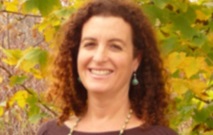 Lisa Aronson Fontes, PhD, is a cultural expert, lecturer, and author. She has focused much of her career helping our mental health, social service, and criminal justice systems be more responsive to culturally diverse people. Dr. Fontes, who teaches at the University of Massachusetts Amherst, has written numerous journal articles and chapters on cultural issues in child maltreatment, violence against women, cross-cultural research, and ethics. In addition, She is the author of Interviewing Clients Across Cultures: A Practitioner’s Guide and Child Abuse and Culture: Working with Diverse Families. The Child-Friendly Faith Project is honored to have Dr. Fontes speak at its conference on Dec. 4th in Austin, Texas. We asked her about her work and the two topics she will address at the event.
Lisa Aronson Fontes, PhD, is a cultural expert, lecturer, and author. She has focused much of her career helping our mental health, social service, and criminal justice systems be more responsive to culturally diverse people. Dr. Fontes, who teaches at the University of Massachusetts Amherst, has written numerous journal articles and chapters on cultural issues in child maltreatment, violence against women, cross-cultural research, and ethics. In addition, She is the author of Interviewing Clients Across Cultures: A Practitioner’s Guide and Child Abuse and Culture: Working with Diverse Families. The Child-Friendly Faith Project is honored to have Dr. Fontes speak at its conference on Dec. 4th in Austin, Texas. We asked her about her work and the two topics she will address at the event.
CFFP: What inspired your dedication to help social workers, law enforcement, and other professionals be more responsive and adaptive to culturally diverse people?
Fontes: Starting in the late 1980s, I saw firsthand how poorly Latino families were being served by the systems that were supposed to be helping them. Interpreters were not made available, cultural differences were misinterpreted as pathology, and families were being torn apart rather than helped. The situation for Latino families has improved somewhat in certain parts of the country, but not everywhere. Additionally, I have become increasingly aware of the problems faced by African American, African, Asian, and other cultural minority families in the U.S. when they get entangled in official systems.
CFFP: When it comes to the social service, mental health, and criminal justice systems in the United States, what kind of shifts have you seen in how professionals respond to culturally and religiously diverse children who are mistreated or neglected? Are they becoming more culturally competent?
Fontes: Many systems and individuals have become aware of the need for cultural competence. But often, even well-meaning people are made uncomfortable by cultural differences and are unsure how to offer the best assistance to families from cultural backgrounds that differ from their own.
CFFP: You’ll be talking about corporal punishment across cultures in your keynote presentation. What do you hope the audience will take away from your presentation?
Fontes: I hope the audience will become aware of the cultural factors that can influence a family’s choice to use corporal punishment. I hope they will understand some of the risks of harsh corporal punishment, and how it can contribute to physical abuse. But most of all, I hope and expect they will come away from the talk saying, “I have great new ideas for how to talk to parents about their use of corporal punishment. I am better equipped to help families keep their kids safe.”
CFFP: In the breakout session you’re giving at the conference, you’ll be talking about child sexual abuse in culturally diverse families with a focus on the Latino community. From your research and experience, why do you think that focusing on this cultural group is particularly important?
Fontes: Latinos are currently the largest minority group in the U.S. and are expected to constitute one-third of the population by the year 2060. Already, more than one out of three people in California and Texas are of Latino origin. I don’t think sexual abuse is more common among Latinos than among other groups, but I know that anyone who works with families will be working with Latinos, and some of these families will be impacted by child sexual abuse. This work is sensitive. It’s important that we do it well.
CFFP: As an advisor for the Child-Friendly Faith Project, why do you feel it’s important to have a conference like this?
Fontes: Religious and cultural issues impact many aspects of life in the United States, especially family life. It’s important for religious and community leaders to become educated about the latest research and best practices for keeping children safe. Additionally, professionals who work with children and families need to understand the religious and cultural influences in their clients’ lives so they can work with them successfully and respectfully.
